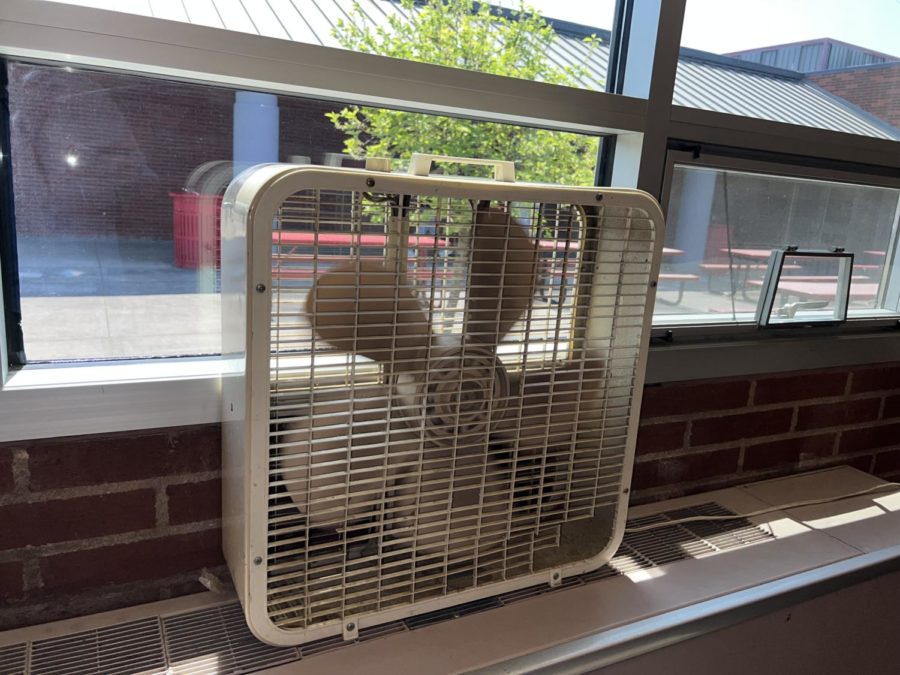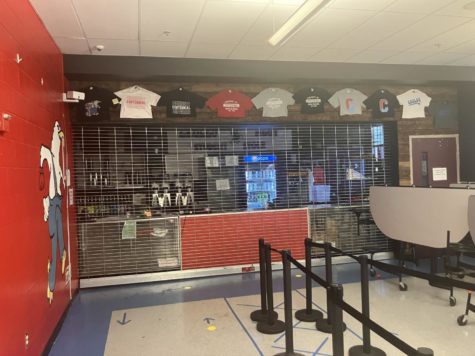Rising temperatures and Bad Air Conditioners
As the summer months approach us, the weather is steadily becoming hotter. Unfortunately, there is still about a month left of school before summer break. This means students and teachers at CHS will have to manage through heat in classrooms. This might seem confusing since all classrooms at CHS have air conditioning, but most of the air conditioners at CHS are just not doing enough. Some classrooms were already too hot in the early spring when the temperatures were peaking at around 60 degrees. If our air conditioners were struggling in 60 degree weather, then in the last few weeks of school when temperatures can get past 100 degrees, classroom heat will be bordering on unbearable.
A lot of people may make the assumption that besides being uncomfortable, heat isn’t a big deal. While understandable, this assumption is not necessarily correct. According to a study conducted by Harvard University, students score lower on tests after experiencing a school year with higher temperatures versus a school year with colder temperatures. This is especially concerning since finals will be occurring at CHS in the next few weeks and temperatures show no sign of decreasing. Having to take a final exam when you’re focused on the heat in your classroom is not something any student at CHS is likely to enjoy.
Finals for students at CHS could mean the difference between passing and failing a class, or in extreme cases graduating or not. Even in regular classroom settings outside of finals, learning gets disrupted when it’s too hot. Many teachers decide to move their classes to the cafeteria or the library when their rooms are unbearably hot. This is not inherently a major issue, lots of classes can function normally in unusual settings, but it is still not desirable for students and teachers to have to interrupt class to move to a different place. But, all of these issues are easily avoidable. The aforementioned study by Harvard University also discovered that air conditioning decreases the negative effects of heat by 78%.
In addition to hindering learning, heat also poses health concerns. According to the Center for Disease Control (CDC), 702 heat related deaths occur each year on average. This number is not particularly high in comparison to the total population of the US (approximately 333 million people), but that does not excuse the potential for heat to harm the health of students or staff at CHS. It’s no secret that teenagers are among the least risk population for heat related illness. However, at CHS there are plenty of older teachers and staff members who are in the high risk group for heat related illness solely because of their age. There are people who are high risk for heat related illnesses for other reasons according to the CDC, such as pregnant people, people with heart or lung conditions, young children, athletes, and outdoor workers. At CHS there are plenty of people who fall into these categories and deserve to have properly air conditioned rooms.
If heat makes this much of a difference, why wouldn’t the school board take steps to repair the air conditioning? Well, fixing/replacing air conditioning is no cheap task. Replacing/repairing air conditioning for a building as large as CHS would likely cost tens of thousands of dollars. Whether this is a worthy purchase or not is simply not up to students to decide. There are likely other reasons that are known to the school board that make fixing air conditioners unrealistic for CHS, but those reasons are up for speculation. It’s a difficult pill to swallow, but in the end, students must succumb to the decisions of the school board. Although it’s disappointing, this serves as a good reminder of the importance to voice your opinions within your community. If students at CHS are interested in improving the school’s air conditioning or implementing any type of change at CHS whether via emails or protests or any other ideas you may have, you are entitled to have your voice heard.
In the meantime, it’s important for students to remember to take care of themselves. Even though the CHS cafeteria does not offer water, drinking fountains are generally not favored by students due to questionable water quality, the only other water options at CHS (such as vending machines or the student store) cost money, it is important to stay hydrated. Bringing a water bottle to school is the typical solution used by many students at CHS. Another good idea to stay safe in the summer is to wear sunscreen if you are in a PE class, or any other class that may involve going outdoors. Finally, for the sake of people around you, don’t forget to wear deodorant in the summer heat, and enjoy the beginning of summer.










